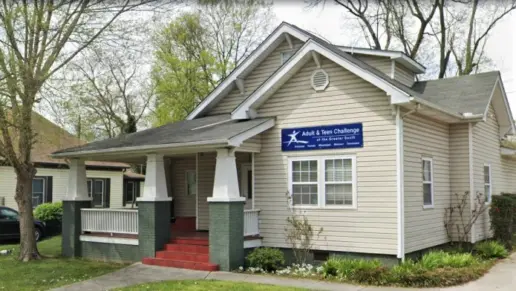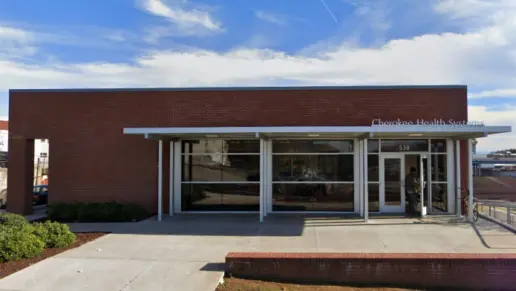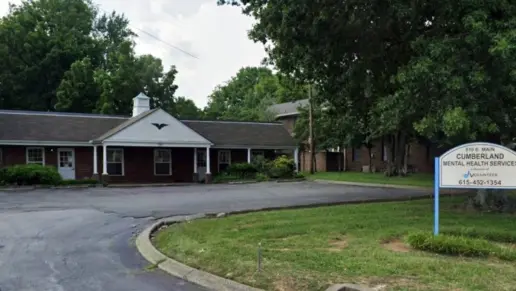The medical staff is wonderful but the administration staff is not friendly at all, when things go bad they blame the clients, they just send the patients that they want to treatment because they have favoritism I always have to wait for hours to be attended. They never gave ...
About Carey Counseling Center – Camden
Counseling Center – Camden, is a comprehensive counseling facility in Camden, Tennessee, that serves adults, adolescents and their families. They have dedicated addiction recovery services that will help you overcome challenges you might be facing with drug dependencies. Care is offered in an outpatient setting. However, just five minutes away from the clinic you’ll find the Camden Group Home. You can get referred to this group home if you need more robust services or a safe place to live as you move through recovery.
Specialized Counseling and Support Groups
Through their dedicated action counseling support, you’ll work with a multidisciplinary team of mental health professionals and addiction counselors. Through this, you’ll get the opportunity to develop healthy habits through reflection and evidence based tactics like cognitive behavioral therapy.
Their specialized programs really help to target the specific struggles you’re facing, getting you closer to receiving the appropriate care you need for a sober and healthy future. These specialized recovery groups include a Juvenile Justice Reform program, parenting groups, and school based behavioral health programs. There are also DUI classes available if you’re facing legal challenges because of your addiction struggles.
Targeted educational groups for adolescents are also offered. This program is for teens and young adults who are either at risk, displaying harmful behaviors or simply need target care for their addiction use struggles.
Medication Management
Medication management is available to help you overcome the substance use struggles or mental health struggles you’re facing. Addiction is a chronic disease, and in some circumstances medical intervention is necessary. Through the right medication management, you can tackle mental health struggles along with cravings that are contributing to your substance use struggles.
Rehab Score
Other Forms of Payment
Private insurance refers to any kind of healthcare coverage that isn't from the state or federal government. This includes individual and family plans offered by an employer or purchased from the Insurance Marketplace. Every plan will have different requirements and out of pocket costs so be sure to get the full details before you start treatment.
Self-pay involves paying for treatment out of your own pocket. You can use savings or credit, get a personal loan, or receive help from family and friends to fund your treatment. If you don't have insurance or your insurance plan doesn't cover a specific program, self-pay can help ensure you still get the care you need.
Medicare is a federal program that provides health insurance for those 65 and older. It also serves people under 65 with chronic and disabling health challenges. To use Medicare for addiction treatment you need to find a program that accepts Medicare and is in network with your plan. Out of pocket costs and preauthorization requirements vary, so always check with your provider.
Addiction Treatments
Levels of Care
Treatments
Mental health rehabs focus on helping individuals recover from mental illnesses like bipolar disorder, clinical depression, anxiety disorders, schizophrenia, and more. Mental health professionals at these facilities are trained to understand and treat mental health issues, both in individual and group settings.
Programs


Clinical Services
Cognitive Behavioral Therapy (CBT) is a therapy modality that focuses on the relationship between one's thoughts, feelings, and behaviors. It is used to establish and allow for healthy responses to thoughts and feelings (instead of unhealthy responses, like using drugs or alcohol). CBT has been proven effective for recovering addicts of all kinds, and is used to strengthen a patient's own self-awareness and ability to self-regulate. CBT allows individuals to monitor their own emotional state, become more adept at communicating with others, and manage stress without needing to engage in substance abuse.
Whether a marriage or other committed relationship, an intimate partnership is one of the most important aspects of a person's life. Drug and alcohol addiction affects both members of a couple in deep and meaningful ways, as does rehab and recovery. Couples therapy and other couples-focused treatment programs are significant parts of exploring triggers of addiction, as well as learning how to build healthy patterns to support ongoing sobriety.
Research clearly demonstrates that recovery is far more successful and sustainable when loved ones like family members participate in rehab and substance abuse treatment. Genetic factors may be at play when it comes to drug and alcohol addiction, as well as mental health issues. Family dynamics often play a critical role in addiction triggers, and if properly educated, family members can be a strong source of support when it comes to rehabilitation.
Group therapy is any therapeutic work that happens in a group (not one-on-one). There are a number of different group therapy modalities, including support groups, experiential therapy, psycho-education, and more. Group therapy involves treatment as well as processing interaction between group members.
In individual therapy, a patient meets one-on-one with a trained psychologist or counselor. Therapy is a pivotal part of effective substance abuse treatment, as it often covers root causes of addiction, including challenges faced by the patient in their social, family, and work/school life.
Trauma therapy addresses traumatic incidents from a client's past that are likely affecting their present-day experience. Trauma is often one of the primary triggers and potential causes of addiction, and can stem from child sexual abuse, domestic violence, having a parent with a mental illness, losing one or both parents at a young age, teenage or adult sexual assault, or any number of other factors. The purpose of trauma therapy is to allow a patient to process trauma and move through and past it, with the help of trained and compassionate mental health professionals.
Contact Information
300 Highway 641 North
Camden, TN 38320


